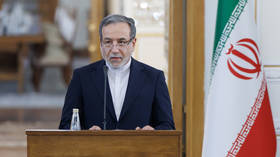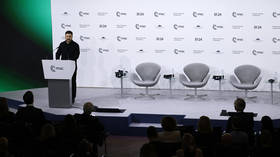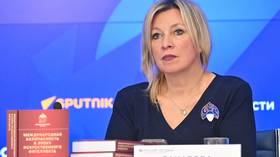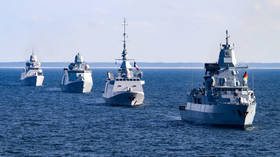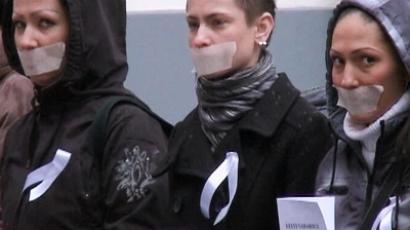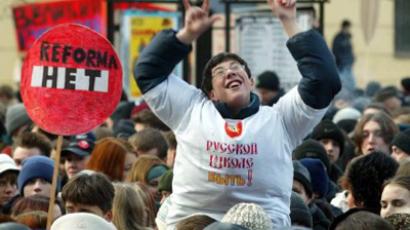Baltic blacklist: Professor sacked for speaking to RT
Media coverage of discrimination against ethnic Russians in the Baltic Republics is fuelling a fresh row. Latvian authorities have sacked a professor, after he voiced his grievances on RT.
In February, a teacher at Riga’s naval academy, Georgs Kuklis-Rosmanis, spoke to RT, rising in defense of his friends from the Russian minority in Latvia. “I cannot accept the policy of treachery to my friends – those who also voted for Latvia’s independence in 1991,” he told RT at the time. “We were shoulder-to-shoulder back then, but now they are being treated like garbage – no citizenship for them and no jobs here. That’s why I signed for the referendum,” Kuklis-Rosmanis said, explaining to RT why he put his signature under the proposal to hold a referendum on making Russian Latvia’s second official language.The poll was held in February, but the option was rejected.And four months on, Georgs is looking for a new job. It was made clear to him by the academy’s management that his appearance on RT meant he had no future there.“My boss called me and said this interview was harmful for our future students,” he now tells RT’s Aleksey Yaroshevsky. “He made it look as if I made an act of aggression against Latvia. I told them I only spoke my mind, which I have a constitutional right to do. Later, my colleagues told me the academy’s rector ordered the HR department to find a reason to sack me after the summer exams.”Sadly enough, Georgs is not the only one to face repressions.A top-level politician from another Baltic country – Estonia – also commented on one of RT’s stories on the country’s ban on Russian. And also found himself targeted by the authorities. The deputy mayor of Tallinn, Mikhail Kylvart, was surprised to see himself on the 2011 annual report put together by Estonia’s security police (KAPO), outlining actual and potential threats to national security. He decided to take action.“I was blacklisted because of my activities to protect and preserve Russian schools here,” he explained to RT. “The security police believe this could violate Estonia’s sovereignty. I have a different opinion and that’s why I filed a lawsuit against the organization. For me it’s not only about clearing my name, but to stop dangerous tendencies which undermine democracy in my country.”That list also contained almost all Russian TV stations – including RT and its correspondent Aleksey Yaroshevsky. It also had Russia’s Foreign Minister Sergey Lavrov, an anti-fascist activist from Finland and a dozen NGOs. Member of Estonia’s parliament Jana Tooma – also one of the names on the blacklist – wrote a letter to Estonia’s prime minister demanding answers. She believes such actions are illegal.“We’re not at war with Russia or anyone else, that’s why we have no grounds to blacklist any organizations or channels,” she explained to RT. “The security police have been writing these reports for many years, but this time they have crossed a certain line. I read their rules and they say this organization is only responsible for gathering information and intel, not publishing it to influence the public opinion.”In the two decades since independence, the Baltic States have been trying hard to bury their communist past. Ironically, putting people on blacklists was one of the methods used by the Soviet special services. So with more people being scrutinized for speaking their minds, the desire of the Baltic countries to follow a democratic path may be called into question.Those who have found themselves under pressure from the authorities for speaking out to the media say they are especially surprised things like that happen in modern-day Europe. They say they never wanted to harm their homeland and want democracy to prevail after all.




